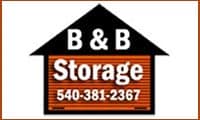Get your home winter-ready
 With El Niño returning for the first time in four years, Virginia could be in for a cold, snowy winter.
With El Niño returning for the first time in four years, Virginia could be in for a cold, snowy winter.
While last winter was relatively mild and lacked significant snowfall, this year may look different. The 2023-24 Farmers’ Almanac forecasts a chilly, wet season for Virginia and the mid-Atlantic, and homeowners should take steps now to winter-proof their homes before the weather arrives.
“An ounce of prevention is worth a pound of cure,” said Laurie Gannon, vice president of claims for Virginia Farm Bureau Mutual Insurance Co. “Ensuring your home systems are working properly and efficiently helps protect your largest investment from loss or damage.”
The Insurance Institute for Business & Home Safety encourages people to assess their homes’ winter exposure, and create a plan for before and after a winter storm. Some older homes, particularly in the South, may be more susceptible to freezing temperatures. It’s important to insulate pipes near exterior walls and in hard-to-reach places like attics and crawl spaces.
IIBSH also suggests scheduling preventive maintenance for home heating systems and to keep homes cozy by caulking and sealing the exterior around windows and doors and adding weatherstripping as needed.
Ensure chimneys, fireplaces and woodstoves are cleaned each year and in good working order to prevent fires and keep carbon monoxide from building up indoors.
And if leaving home, even for a few days, “maintain your heat at a reasonable temperature—over 60 degrees,” Gannon advised.
“Around Christmas 2022, some of Virginia had bitterly cold temperatures,” Gannon explained. “Many people were traveling, and they turned down their thermostats to save on heating costs. Because there wasn’t sufficient heat in the structure combined with the cold, their pipes burst. Imagine returning home from a holiday trip and finding your home underwater!”
Outside the home, check your roof and replace loose, damaged or missing shingles. Fix any gaps or broken seals around vents, chimneys and roof corners. Roof leaks and ice dams can be avoided by clearing debris from gutters and drains.
Trim tree branches near or overhanging your house, as they can damage the roof, siding and windows. Shut down sprinkler systems, and drain outdoor faucets, irrigation systems and hoses.
Also, take an inventory of your home, and know what’s covered, noted Gannon.
“It’s always time well spent to review your policy with your insurance agent. Our agents can provide details on any new enhancements to the farm, home or business policies that you may be missing out on.”
Finally, don’t forget to protect yourself. Monitor weather alerts, and plan accordingly. Having an alternate heating source like a generator is recommended in case of a power outage, along with keeping an emergency kit with water, nonperishable food and other supplies.
For more tips on winter preparation, check out the IBHS Winter Ready Home Checklist at bit.ly/3SpDqCT.
Media: Contact Gannon at 804-290-1423.









